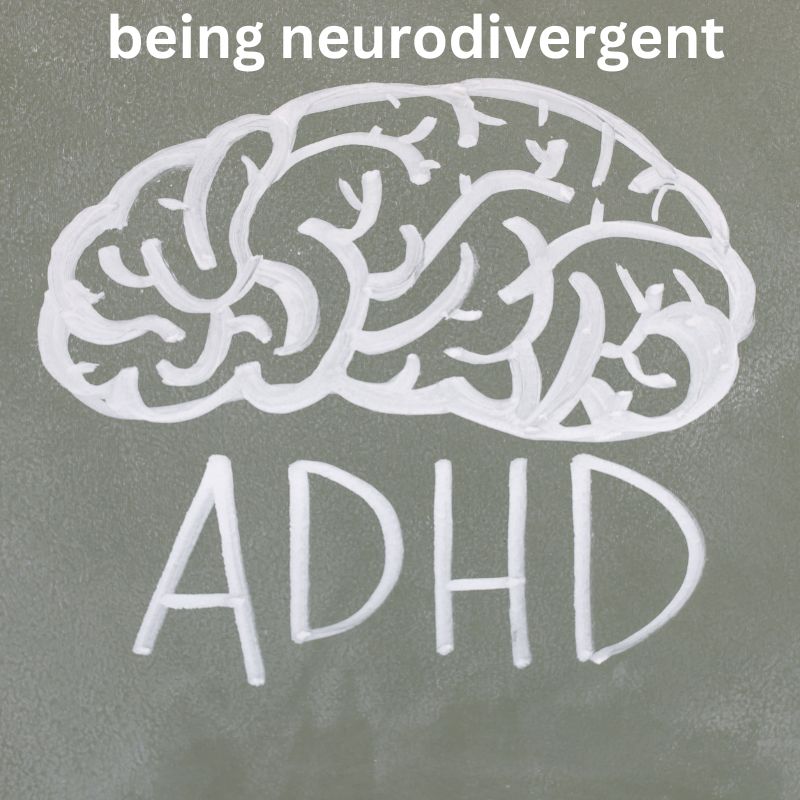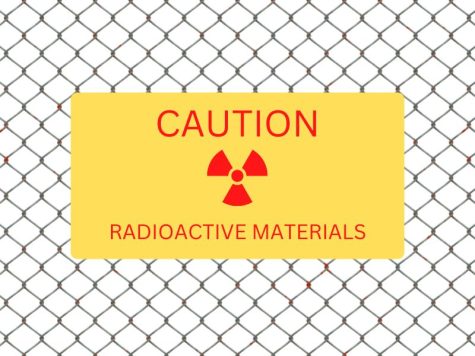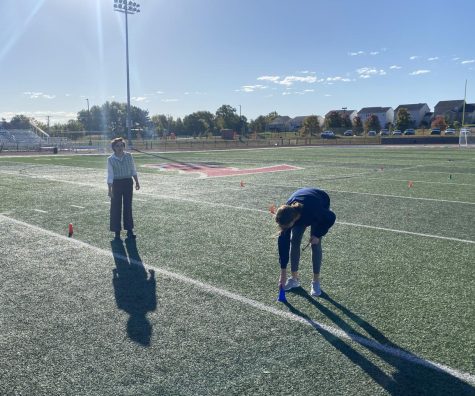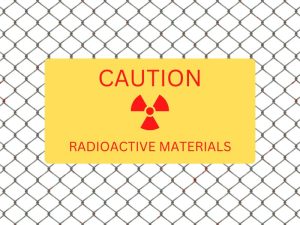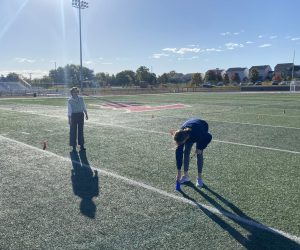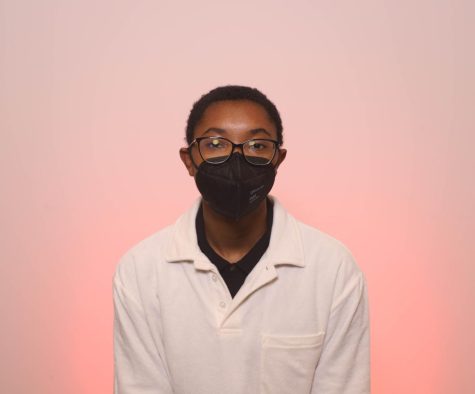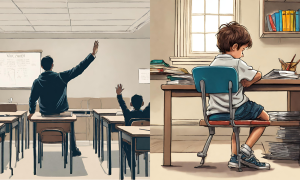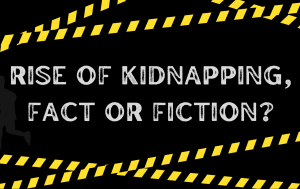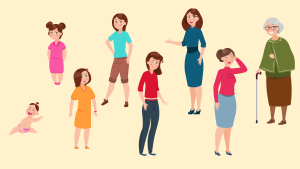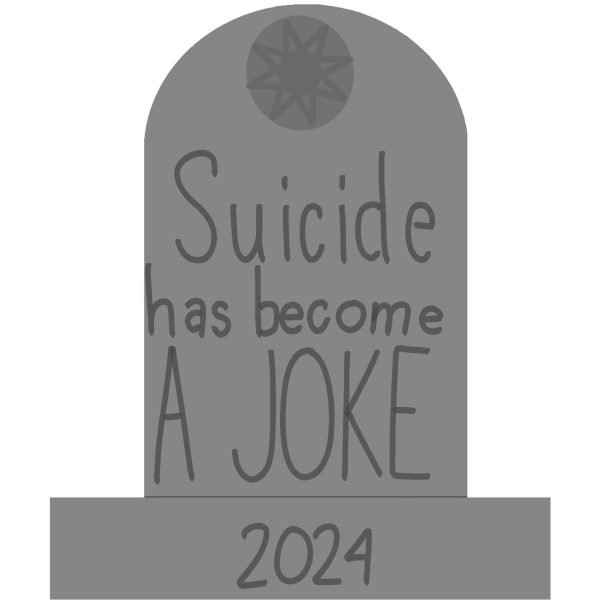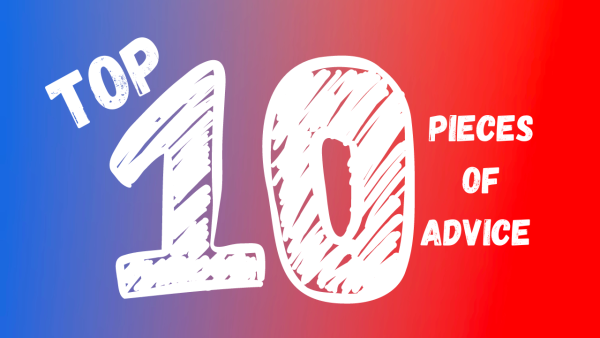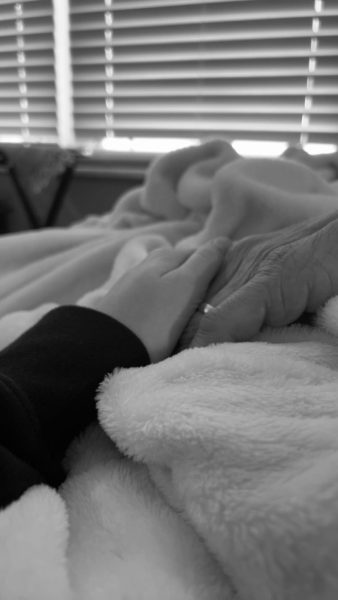ADHD Isn’t Always Obvious
ADHD is often times skipped over when diagnosing those who don’t seem to fit every symptom
ADHD stands for attention deficit/hyperactivity disorder. It’s a neurological or psychological disorder. It’s marked by symptoms of hyperactivity, impulsivity, and inattention.
November 3, 2022
Twelve years in my life went by knowing something wasn’t right with me. It was constantly a struggle to stay focused in school. Or stay still in class. It was difficult to concentrate on my work without my brain thinking about a million different things. If someone else was talking it would be very hard not to interrupt. What I didn’t know is that these are all symptoms of ADHD.
ADHD stands for attention deficit/hyperactivity disorder. It’s a neurological or psychological disorder. It’s marked by symptoms of hyperactivity, impulsivity, and inattention. While researchers don’t exactly know what ADHD is caused by, researchers believe it may be a combination of genetics and heredity.
Growing up I figured out really fast how people with disabilities are treated differently. I saw it at home when my family would talk about anyone with disabilities in my family. The parents of the kids who had autism felt the need to control every aspect of their lives even though they were adults. They were seen as helpless, and dumb.
I later realized that it wasn’t just my family but that the world had this same thought. I saw the way people at school treated anyone who was different from them. They would purposely avoid talking to people with visible disabilities. Or whisper about them to their friends.
For me it wasn’t like that though. It wasn’t obvious that I had a disability at all. ADHD isn’t a visible disability. It’s more internal for me. And sometimes you can see the visible symptoms. No one ever viewed me as outgoing or talkative. My family said I was always calm and mature. There were only a few times that if you really thought about it you could tell I have ADHD.
It actually took awhile for my family to finally believe me because of this. I remember my mom telling me that she looked up the symptoms and said that none of them apply to me. Maybe she thought none of the symptoms applied to me because I was always known as “the quiet kid.” Even though I actually wasn’t that quiet. Many people don’t realize that these are symptoms of inattentive ADHD. A lot of people already have a stereotype of what people with ADHD act like ingrained in their head and don’t even realize.
It took at least a month of me trying to convince my parents to take me to get a diagnosis. They still didn’t believe that I had it but decided to take me anyway. When we got to the therapist’s office, she began to ask me a lot of questions. Like why do you think that you have ADHD? I explained my main symptoms to her. My mom then went on to talk about how easily I get irritable, not even realizing that’s a sign of ADHD. It was an hour-long session, and by the end of the session she said that I have ADHD.
I’m still very fortunate to have gotten a diagnosis. Many people go their whole lives without getting one. Knowing something is wrong, but receiving no help. And even some people who get a diagnosis are misdiagnosed.
After being diagnosed with ADHD, my family’s first thought was curing my ADHD. At first they didn’t even believe the therapist that diagnosed me. But in my head everything started to make sense. They wanted my ADHD gone completely. But I had no intention of having my brain zapped back into place weekly. Or having to take medication daily. This is not to say that this doesn’t work for some people because it does. Most of the time my ADHD was manageable so I would just have to figure out how to live with it.
It was sad that in the few weeks that I had been diagnosed with ADHD I was already starting to experience ableism. Ableism is social prejudice and discrimination against people with disabilities or people who are perceived to be disabled. Whether you realize it or not, ableism affects every aspect of everyday life. But this doesn’t mean society has to stay like this. I’ve learned that there is nothing wrong with having ADHD, every single person is different, and we should be treated with respect.

